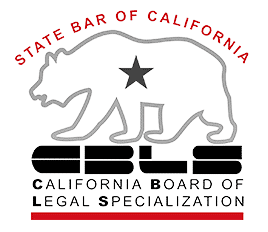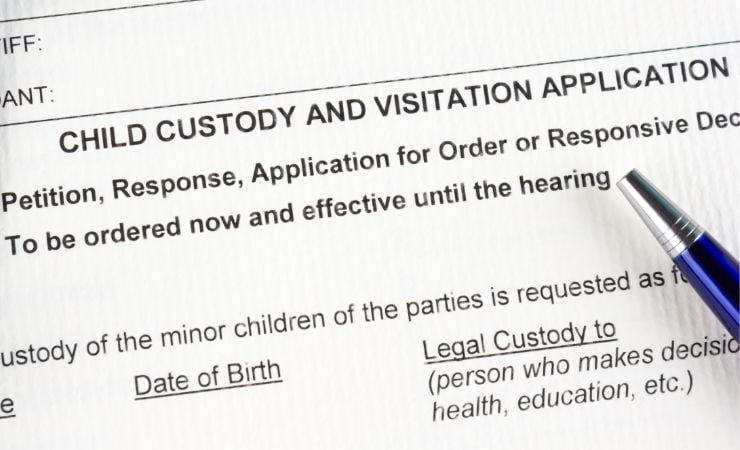Santa Barbara Child Custody & Visitation Lawyer

Santa Barbara Child Custody & Visitation Attorney
Dissolving a marriage can be a difficult process for the couple involved. When that couple has children, the process can be even more difficult and have a much greater impact on the family. In any marriage separation that involves children, the hope is that the parents can reach an amicable agreement. Ideally, they will establish a parenting plan that settles child custody and visitation in the best interests of the child. If that is not possible, the legal system will take on the responsibility of determining what is best for the child.
If you are separating from your spouse, or are already separated and wish to change a custody agreement, make sure that you don’t face the process alone. Speaking with an expert family law attorney can significantly help your case. At Drury Pullen, A Professional Law Corporation, our attorneys are ready to help you through this complicated process in Santa Barbara, CA.
Legal Custody
Legal custody is the order that designates which parent has the rights and responsibilities to make decisions for the child. The two types of legal custody include:
- Joint legal custody: When you and the other parent share custody of the child, you both share in the responsibility and the decision-making when it comes to the health, education, and welfare of the child.
- Sole legal custody: Unlike joint custody, sole custody puts all the responsibility and decision-making on the shoulders of one parent.

Physical Custody
The child’s physical custody is determined by where the child will reside. There are three types of physical custody orders:
- Joint physical custody: Under these orders, both parents will have a significant amount of time with the child.
- Sole physical custody: Under this type of court order, the child will be under the direct supervision of one parent. These orders are often accompanied with information about visitation rights for the other parent that are in the best interests of the child.
- Primary physical custody: This coincides with joint custody orders. If awarded joint custody, the time split for the child between both parents may not be exactly 50/50 because of school or other obligations. In these situations, the parent who spends more than half the time with the child is considered the primary parent.
The Child’s Best Interests
Whatever decisions are made between parents or by the legal system, they must be in the best interests of the child. Because the choices of the parents are not the responsibility of the child, the long-term consequences of those decisions should seek to have the least impact on the child.
When deciding what is in the child’s best interests, there are many factors that should be taken into consideration, including:
- Child’s age
- Child’s health
- The parent’s ability to provide care for the child
- The emotional relationships that exist between the child and the parents
- Any history of domestic violence or substance abuse
- The location of the child’s school
- Any community involvement by the child
Enforcing Child Custody or Visitation
Whether through mutual agreement or court order, custody and visitation orders are legal parameters that parents need to follow. While most parents adhere to the orders that are given, there are others who choose to disregard them. If your former spouse fails to follow the directives of the custody and visitation orders, you are entitled to take legal action against them, which can modify the current orders. There are a few common situations that could lead to legal action:
- One spouse habitually misses their scheduled visitation. If you feel talking directly to the parent will not yield a successful resolution, then you should pursue changes to the custody and visitation order through the court system.
- If one spouse is purposely withholding visitation or custody, then it is a significant sign that legal help is needed. These types of actions could be considered criminal and should be investigated as such by local law enforcement or the prosecutor’s office for potential kidnapping.
- Some violations of custody or visitation orders are less drastic and simply interfere with the process that is established by parental agreement or court order. In these situations, a simple filing for contempt of court could be enough to initiate the changes needed. With a contempt of court filing, if the parent is found to be in contempt, they could face fines and jail time in addition to any modifications of the court order.
- Some parents may feel that modifications to custody and visitation need to be made because the other parent denies them visitation. If this is without cause, then yes, legal avenues can be taken. However, if a parent is denied visitation by the other parent but has failed to pay child support, for example, there is no justification to take the denying parent to court.
Family Law Attorney FAQs
Q: How Much Does It Cost to Go to Court for Child Custody in California?
A: Every case is different, and costs can vary greatly. However, attorney fees generally fall between $3,000 and $20,000. A variable that must be accounted for is the amount of mediation that is needed or the number of court appearances that are necessary. It is best to ask about fees during any preliminary consultations.
Q: How Much Custody Can a Father Get in California?
A: The gender of the parent plays a minimal role in determining custody of the child because it may impact the emotional connection the child has with them. The determination of custody is made to ensure that the best interests of the child are met. Both parents could fulfill those interests. In most cases, the state seeks to award joint custody so that the child can build meaningful bonds with both parents.
Q: What Happens at a Custody Hearing in California?
A: Hearings will last approximately 30 minutes. They generally begin with the judge establishing the procedures for the hearing. Then, both parties will get to speak, starting with the parent who filed the request. The judge will then swear in the parents and ask questions. From there, the judge will decide whether to finalize the case or make a temporary determination while establishing the next steps.
Santa Barbara Child Custody Attorneys
If you are involved in any type of child custody case, whether you are beginning the divorce process or need modifications to already established court orders, you should seek the help of an expert attorney. With knowledge and experience on your side, you can better navigate the complicated and complex child custody and visitation laws. At Drury Pullen, A Professional Law Corporation, we put our expertise to work for you. We want the best outcome possible for you and for the best interests of your child. Contact our offices today and let us get to work on your case.
